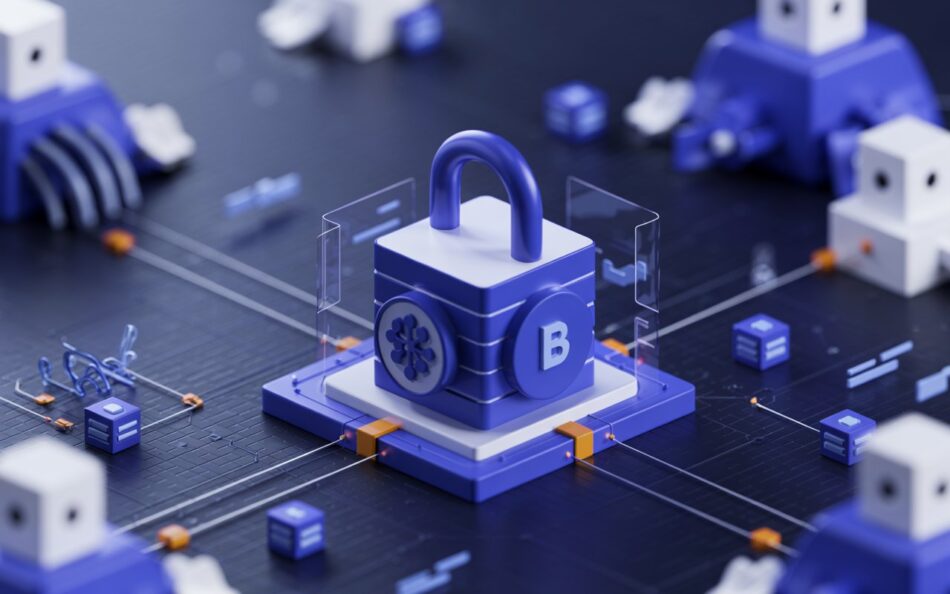In the ever-evolving world of technology, two titans—Artificial Intelligence (AI) and Blockchain—are on a collision course toward convergence. Separately, they’ve redefined industries and inspired innovation at unprecedented levels. But what happens when smart contracts—the backbone of blockchain automation—interact with smart machines powered by AI?
This fusion presents a transformative opportunity, promising not just better automation, but truly intelligent, self-governing systems. Let’s explore how AI models can be integrated with blockchain protocols, what challenges arise, and what the future holds for this groundbreaking synergy.
Why Combine AI and Blockchain?
Before diving into the integration process, it’s important to understand why these technologies complement each other so well:
-
AI thrives on data, and blockchain provides a secure, transparent way to store and verify data.
-
Blockchain needs intelligent decision-making in decentralized environments, which is where AI steps in.
-
Smart contracts execute predefined rules. AI enhances those rules by introducing adaptability, prediction, and context-awareness.
By bridging these technologies, businesses can unlock new levels of automation and trust.
Use Cases: Where Smart Contracts and AI Intersect
1. Predictive DeFi Contracts
Imagine a decentralized finance (DeFi) application where a smart contract can adjust interest rates based on AI-driven market analysis. The AI model processes real-time financial data and sends its insights to a blockchain protocol, triggering adjustments autonomously.
2. Supply Chain Verification
Blockchain already plays a key role in supply chain transparency. Adding AI to this equation allows for real-time fraud detection, route optimization, and predictive logistics using historical and real-time data.
3. Decentralized Insurance
With AI models trained to analyze behavior, risk, and historical data, insurance claims can be assessed and even approved autonomously by smart contracts, reducing delays and human bias.
The Technical Challenge: Integrating AI with Blockchain
While the potential is vast, integrating AI with blockchain isn’t plug-and-play. It involves solving a number of architectural and performance challenges.
1. On-chain vs. Off-chain AI
AI models are typically large, requiring significant computing power. Running them directly on-chain is inefficient and often impossible due to gas costs and speed limitations.
Solution:
Most implementations opt for an off-chain AI model that communicates with the blockchain via oracles—middleware that relays data from external sources to smart contracts. Chainlink is one popular example of this approach.
2. Data Integrity
For AI models to be accurate, they need reliable data. Blockchain ensures data authenticity, but feeding real-world data onto the blockchain remains a complex challenge, again involving oracles and trusted data sources.
3. Model Transparency and Verifiability
AI decisions can often be black boxes. However, blockchain offers the chance to track model inputs, outputs, and decision pathways. Projects like Ocean Protocol are working toward data sharing with embedded transparency.
Real-World Projects at the Intersection
Several innovative projects are already experimenting in this space:
-
SingularityNET: A decentralized platform where developers can create, share, and monetize AI services.
-
Numerai: A hedge fund powered by a data science competition that uses AI predictions on the blockchain.
-
Fetch.ai: Combines multi-agent systems with blockchain for intelligent automation in mobility, finance, and more.
These platforms are laying the groundwork for a new era, where AI development solutions are not just powerful but also secure, decentralized, and transparent.
The Role of Blockchain Software Developers
The task of integrating AI into smart contracts isn’t just for data scientists—it heavily involves Blockchain Software Developers. These developers need to:
-
Design modular smart contracts that can receive and act on off-chain AI inputs.
-
Collaborate with AI teams to ensure models are deployed in a blockchain-friendly format.
-
Optimize gas fees and performance to ensure scalable solutions.
As this hybrid space matures, developers who can bridge the gap between AI and blockchain will become some of the most in-demand professionals in the tech world.
Ethical and Security Considerations
With great power comes great responsibility. Combining AI and blockchain raises important ethical and security questions:
-
Who is responsible if an AI-driven smart contract makes a wrong decision?
-
How do you ensure fairness and bias mitigation in AI models used in decentralized applications?
-
Can malicious actors manipulate data inputs to deceive smart contracts?
To tackle these, developers and stakeholders must build auditing mechanisms, transparent model logs, and fail-safe overrides into the system. The immutability of blockchain becomes both a safeguard and a limitation here.
The Future of Intelligent Smart Contracts
The horizon for AI-integrated smart contracts is bright. Here’s what the next decade might bring:
-
Self-improving contracts that learn from usage patterns and update terms over time.
-
Autonomous DAOs (Decentralized Autonomous Organizations) governed by AI, capable of making decisions and reallocating resources without human intervention.
-
Personalized services in finance, healthcare, and education, powered by AI models securely hosted and verified on the blockchain.
In this future, AI development solutions will not just be about building smarter algorithms—but about embedding them into trustless digital ecosystems powered by blockchain.
Final Thoughts
The convergence of AI and blockchain is not merely a tech trend—it’s a paradigm shift. By enabling smart contracts to leverage smart machines, we’re building a world where code is not just law, but intelligent law.
As Blockchain Software Developers and AI engineers increasingly collaborate, we will witness the birth of systems that are not only decentralized and secure but also adaptive, context-aware, and capable of making informed decisions.
Whether you’re building the next-generation DeFi platform, a transparent supply chain system, or a self-governing DAO, the integration of AI and blockchain is no longer optional—it’s the next step in the evolution of intelligent digital infrastructure.









